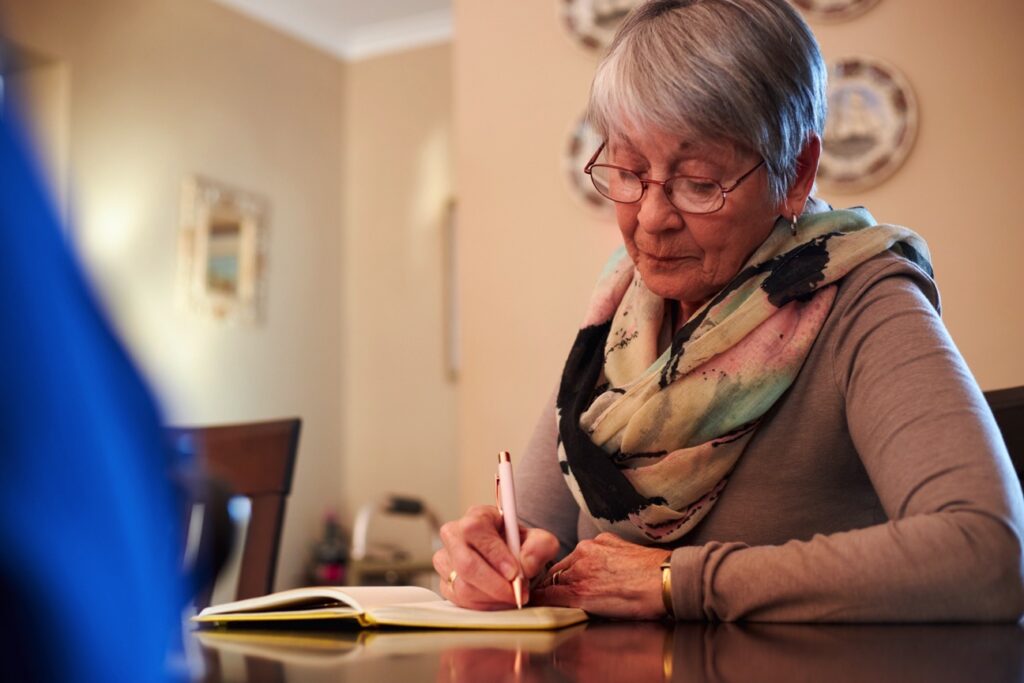March 14th marks a lesser known day in our national calendar: Write Your Own Story Day. It’s an opportunity to reflect on all the stories we hear throughout care facilities and in our lives, along with all of the stories yet to be told. Throughout my career, I have worked as a carer, dementia arts facilitator, and writing mentor for people with life limiting illnesses. Whether it is helping individuals write their autobiographies or listening to a whispered regret at the bedside, I have learned each story reveals something singular and potent about the many lives they have lived.
Care facility owners and their teams know families can often reach a point in their loved one’s illness when the stories they used to cherish are dismissed with an “I’ve heard it all before.” Faced with the progressive loss of dementia, we often close down opportunities for connection at the very moment when connection matters most. One of my aims as a facilitator is to find ways to redirect the longing for answers to questions we wish we had asked toward a curiosity about what is possible in the present. Here are three things I have learned:
- Welcoming all of our senses to storytelling.
I once worked with a gentleman living with late stage dementia during a reminiscence art class in the UK, called Remembering Yesterday, Caring Today. Each session he sat in his wheelchair and remained mostly non-verbal. During our session on first jobs, we handed him some shoe polish, a brush and a leather boot. He sprung into action to demonstrate the technique he learned during his time as a reserve in the army. This moment, and many others like it, reminds us of the power of the senses to provide a doorway into a person’s story, even when we might assume the doorway has long closed.
- Learning to savor stories when we think we have heard it all before.
When writing or telling our stories, it’s easy to forget how storytelling for most of our lives is a communal act. I find it’s common for care partners and family members who are mostly alone to grow accustomed to stories. The stresses and strains of caring often leave us ‘tuning out,’ when these stories, in fact, represent the jewels of their lives. I have found care partners are delighted by witnessing an old story receive a new audience. That one joke, that first glance at church, or the time a seagull stole their ice cream, becomes newly enlivened as they glimpse once again the person they knew, know, and love.
- Writing y(our) story is all about relationships
If you ask someone enough questions about their story, what begins as my career, my pain, my triumphs more often than not becomes, our journey, our struggles, our celebrations. For some writers this is an obvious truth they have lived by. Yet for many others, the chance to tell their story awakens them to all the relationships that held their life together and made it possible. The acts of writing and telling reveal to us how our stories are not merely a sequence of events, but a campfire for others to bring their own.
On behalf of PCH Mutual, I invite all members to think about how we can guide residents to tell their stories. Whether the story is prompted via a cherished object, song, dance, or question, every moment presents an opportunity to guide residents to write or tell their own.
To start your residents on this journey please visit Resident Stories on PCH’s website to spark the memories that tell their story. You can print and/or post their story to share with others.
Indigo Weller is a writer and narrative researcher with a background in healthcare and patient advocacy. He is currently working as a consultant for Stripe Partners in London.





